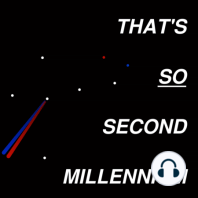37 min listen

Episode 043 - Introduction to the Brain
Episode 043 - Introduction to the Brain
ratings:
Length:
33 minutes
Released:
Jan 21, 2019
Format:
Podcast episode
Description
In this episode, we lay out the basic groundwork for future discussions of the human brain.
The brain we humans have apparently evolved in three stages. This can't help but be a tremendous simplification, but it's a commonly encountered statement and seems to have considerable explanatory power.
The lowest part of the brain, the brain stem (the medulla, etc.) and the cerebellum, control unconscious processes, most of which we cannot take into conscious control even if we want to. Often this is called the "lizard" or "reptile brain."
A series of little suborgans, the thalamus, hypothalamus, amygdalae (a - myg ' - da - la, the good Latin pronunciation, for the singular apparently; and my Webster's unabridged also informs me that it just means "almond shaped thing"), putamen (that habit-storing part I could not remember during the episode), and a few other parts form the limbic system, that communicates between the senses and the body, and that serves critical functions for things like emotion and memory that we share with mammals.
The upper part of the brain, the big part in human brains, is the cerebrum. Its regions are referred to as cortex / cortices or lobes. We have large volumes of the brain dedicated to visual and auditory processing, motor skills, and the whole front of the brain is where the neural work of our most human capabilities occurs: judgment, reasoning, wondering, creativity, consciousness.
The following two books informed the discussion today:
The Body Keeps the Score by Bessel van der Kolk
Mapping the Mind by Rita Carter
I cannot recommend The Body Keeps the Score highly enough. It starts out as a discussion of PTSD, but it grows organically into a discussion of problems that all children, and therefore all of us, are liable to have, and ways that are being discovered to bring both brain and body to peace.
On the other hand, Mapping the Mind is only intermittently good. The first hundred pages I found rough sledding, with little sense the author understood the facts being hauled out and stacked up. It got better. The last few chapters betray the common, poorly thought through materialist reductionism common in the field, no surprise, but the content of the final 200+ pages is mostly good. Autism, depression, and addiction come up, although the stock in trade is discussion people with bizarre, tragic, but fascinatingly specific brain damage and what those episodes suggest about how all the different mental aspects of being human are spread about the brain.
The brain we humans have apparently evolved in three stages. This can't help but be a tremendous simplification, but it's a commonly encountered statement and seems to have considerable explanatory power.
The lowest part of the brain, the brain stem (the medulla, etc.) and the cerebellum, control unconscious processes, most of which we cannot take into conscious control even if we want to. Often this is called the "lizard" or "reptile brain."
A series of little suborgans, the thalamus, hypothalamus, amygdalae (a - myg ' - da - la, the good Latin pronunciation, for the singular apparently; and my Webster's unabridged also informs me that it just means "almond shaped thing"), putamen (that habit-storing part I could not remember during the episode), and a few other parts form the limbic system, that communicates between the senses and the body, and that serves critical functions for things like emotion and memory that we share with mammals.
The upper part of the brain, the big part in human brains, is the cerebrum. Its regions are referred to as cortex / cortices or lobes. We have large volumes of the brain dedicated to visual and auditory processing, motor skills, and the whole front of the brain is where the neural work of our most human capabilities occurs: judgment, reasoning, wondering, creativity, consciousness.
The following two books informed the discussion today:
The Body Keeps the Score by Bessel van der Kolk
Mapping the Mind by Rita Carter
I cannot recommend The Body Keeps the Score highly enough. It starts out as a discussion of PTSD, but it grows organically into a discussion of problems that all children, and therefore all of us, are liable to have, and ways that are being discovered to bring both brain and body to peace.
On the other hand, Mapping the Mind is only intermittently good. The first hundred pages I found rough sledding, with little sense the author understood the facts being hauled out and stacked up. It got better. The last few chapters betray the common, poorly thought through materialist reductionism common in the field, no surprise, but the content of the final 200+ pages is mostly good. Autism, depression, and addiction come up, although the stock in trade is discussion people with bizarre, tragic, but fascinatingly specific brain damage and what those episodes suggest about how all the different mental aspects of being human are spread about the brain.
Released:
Jan 21, 2019
Format:
Podcast episode
Titles in the series (100)
Episode 021 - Hypocrisy and Geology: Battlegrounds Between Faith and Science: Bill and I start off by discussing some of the reasons why there is such animosity against faith and such a tendency to credit the claim that science and religion are mutually incompatible. I think we miss a great deal of the point if we do not take into... by That's So Second Millennium